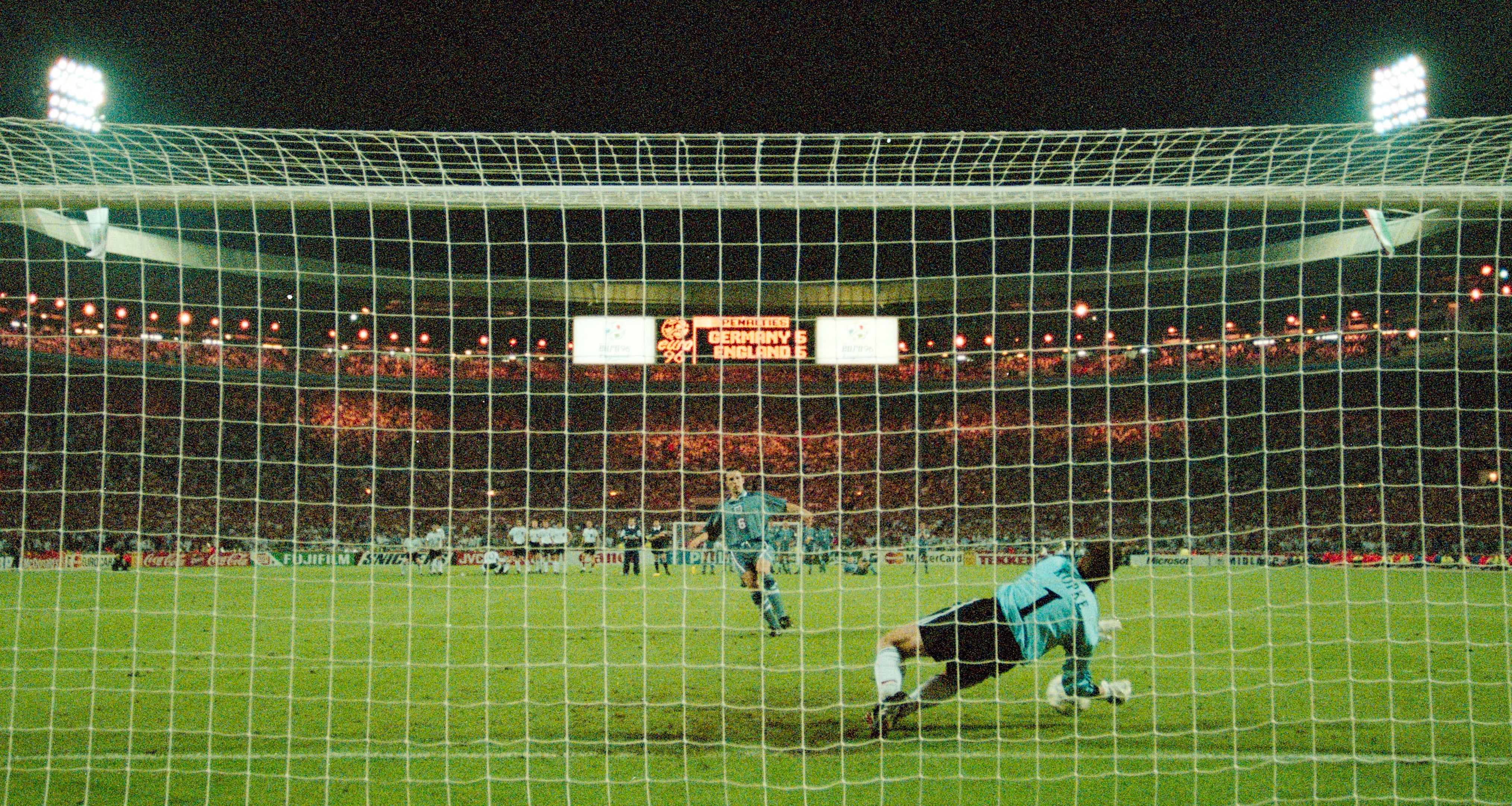Gareth Southgate: England’s modern manager with an old school will to win
Southgate has guided the Three Lions to a first World Cup semi-final since 1990 and helped a country rediscover its love for its team in the process. Tom Kershaw takes a look at the man who celebrated his 50th game in charge last week, breathing new life into the England team along the way


After being sacked by Middlesbrough in 2009, a surprised and somewhat aggrieved Gareth Southgate sat at his living room table, stewing until the early hours, and wrote a list. Despite the bitter taste of his dismissal, before chewing over every last detail, lesson and mistake, Southgate was instead making a record of every item he’d borrowed from the club where he spent almost a decade as a player and coach, right down to the last, muddied pieces of clothing. So consumed by the task at hand, only once his wife, Alison, came downstairs at 3am, wondering why the lights were still on, did she realise what had happened.
That scene might still be the perfect portrait of the individual who became the first Englishman to reach 50 caps as both a player and manager with a second-gear waltz past San Marino on Thursday. Before his wealth of achievements, the mortifying penalty miss or banal addiction to a creaseless waistcoat, Southgate is an ultimate pragmatist. It’s the trait that has underlined his entire career, a shackle to logic that precluded him from “absolute freedom” as a player – a reputation that stretched so far as being nicknamed after the presenter Denis Norden as an academy graduate at Crystal Palace due to his precise intonation. But it is also what has enabled him to evolve into England’s ideal figurehead, capable of balancing the duties and demands of a diverse team while staying true to his principles. It could, at times, be tempting to describe Southgate as passive. More often, though, you suspect it’s the necessary medium between personal ambition and paternal leadership.
Read more:
If that is the result of harsh experience, then it also reveals the virtue of having a manager who’s inherited moments of such punctuating heartbreak from his playing career. Even now, Southgate is still tormented by his penalty miss against Germany at Euro 1996, which came just nine caps into his 55 England appearances. The sixth taker, with a previous record that amounted to one wild slog at Palace, the centre-back should never have been called upon in the first place. It was not so much a sense of bravado that pushed him forwards at sudden death, but the general lack of preparation within England’s camp. It left a scar that he can’t wipe away, but it also roused his desire to fixate on every necessary detail. “I’ve learned a million things from that day and the years that followed it,” he said. “When something goes wrong in your life it doesn’t finish you and you should become braver, knowing that you’ve got to go for things in life and don’t regret because you didn’t try to be as good as you might be.”

So, in the lead-up to the 2018 World Cup, when England’s players were out on their feet after training, he’d order the squad to start practising penalties, attempting to recreate the gauntlet that once engulfed him. In the quarter-final against Colombia, with a losing streak to rival boxing’s lowest-rung journeymen, England were victorious in the shootout and even Southgate, who typically eschews individual praise, admitted it was a source of redemption.
And while that penalty miss may still always define Southgate to an older generation, it was two years later, at the 1998 World Cup, when he began to gather his principles as a coach; namely, that in an environment as burdensome as England’s, tenderness was often far more productive than tactical prowess. Under Glenn Hoddle, there was not only a lack of bonding but a deeper absence of fun at all, leaving only a fractious air of competitiveness in its place. “Glenn is a complex man,” Southgate later said in Woody and Nord: A Football Friendship. “Deep down, I believe, he is a decent person but he doesn’t communicate well with people and he has a way of rubbing players up the wrong way.” The pictures that emanated from England’s camp in Russia, of inflatable swimming pool blow-ups and table tennis tournaments, might have seemed a tad childish, but on few occasions has an England squad simultaneously felt so united.
Read more
Southgate himself believed it was too early in his career to take over as caretaker manager in 2016. At Middlesbrough, he admitted to feeling awkward when players referred to him as “gaffer”, although he still showed a firm hand when Ray Parlour, a former teammate, instead revived the pet name “Big Nose” that so often trailed Southgate as an apprentice; Parlour never played for the club again. It wasn’t until four years after his sacking that he joined the England set-up as U21s coach and, when the opportunity arose to lead the senior side, he baulked at the idea as those old haunts of ill-preparation reared to the fore.
With hindsight, it is fair to say that, for what gaps Southgate had in experience, he has filled with character; an element of warmth that many initially believed would blunt his ability to cut it at the top level. “Most of my career I have been killed for that [being nice], haven’t I?”, he once observed. Niceness, though, should not colour his drive. It was key in his childhood, when he had to fight tirelessly and rely on a self-deprecating sense of humour to dispel a “posh boy” reputation in the rough-and-tumble ranks of Palace’s academy. It remained throughout his playing career and has resonated with an abundantly skilled modern generation, who are more sensitive and socially conscious. Southgate’s demeanour has not been so much a charm or weakness as a weapon.

One obvious example came when Raheem Sterling’s tattoo of a gun was revealed in the lead-up to the World Cup, provoking the tabloids into an uncomfortable frenzy. Rather than creating a siege atmosphere, Southgate established a more open and honest relationship with the media. It helped the country to warm to a team who’d inherited a less than flattering reputation after the squandered talents of the Golden Generation and the more recent wine-stained scandal of Sam Allardyce’s 67-day tenure. This current squad may arguably be no less precious in terms of its ability, but it does not see itself that way.
Above all else, that is the reflection of Southgate the man. A self-effacing motto and desire to sacrifice that has always lifted those around him. He may not be a conventional risk-taker or a tactical genius in the mould of Pep Guardiola, but he has never pretended to be, either. His principles are still founded on the same ground that his career began and, when he crashed and burnt, be it at Euro 1996 or Middlesbrough, his first instinct has always been to scour the ashes and rebuild. That attitude has already taken England to a first World Cup semi-final since 1990, and when the time inevitably comes for Southgate to hand back his belongings, he won’t be left wondering about what’s been left behind.
Join our commenting forum
Join thought-provoking conversations, follow other Independent readers and see their replies
0Comments